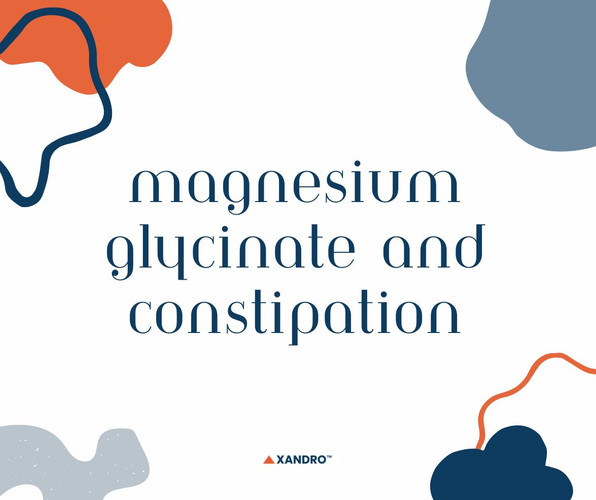Magnesium For Constipation? Which To Take?
17th Mar 2024
Is Magnesium Glycinate Good for Constipation?
Is Magnesium Glycinate a laxative?
Magnesium glycinate is one of the best forms of magnesium on the market due to it being highly absorbable and therefore, helping boost your magnesium levels fast. Other magnesium glycinate benefits include being one of the best magnesium supplements for sleep, anxiety, depression and stress and possibly for certain inflammatory conditions.
One of the reasons magnesium glycinate is so great is that it doesn’t have a strong laxative effect, meaning it’s a great form to take for those who are looking to increase their magnesium levels long-term without getting diarrhoea. Due to this, while it will help eventually relieve constipation, it’s more beneficial in the long run for regulating bowel function, rather than for short-term constipation issues.
How much magnesium glycinate should I take for constipation?
Rather than asking how much magnesium glycinate to take, it’s important not to exceed the recommended daily dosage of elemental magnesium. This is found on the back of the supplement you’re buying, such as there being 100mg of magnesium in Xandro Lab’s 500mg of Magnesium Glycinate. The recommended magnesium dosage is 400 to 420mg per day for men and 320 to 360mg per day for women.
Which magnesium is best for constipation?
Due to this, if constipation is what you’re trying to target, you might want to look at magnesium citrate. It has a natural laxative effect while still being highly bioavailable. It also may help with anxiety and depression due to its calming benefits.
While magnesium oxide is often prescribed for constipation, especially since it’s cheap, it doesn’t absorb well, so you’re only really getting digestive benefits, such as helping heartburn, indigestion and constipation.
Read more about the different forms of magnesium and which to take for your targeted health issues here.
